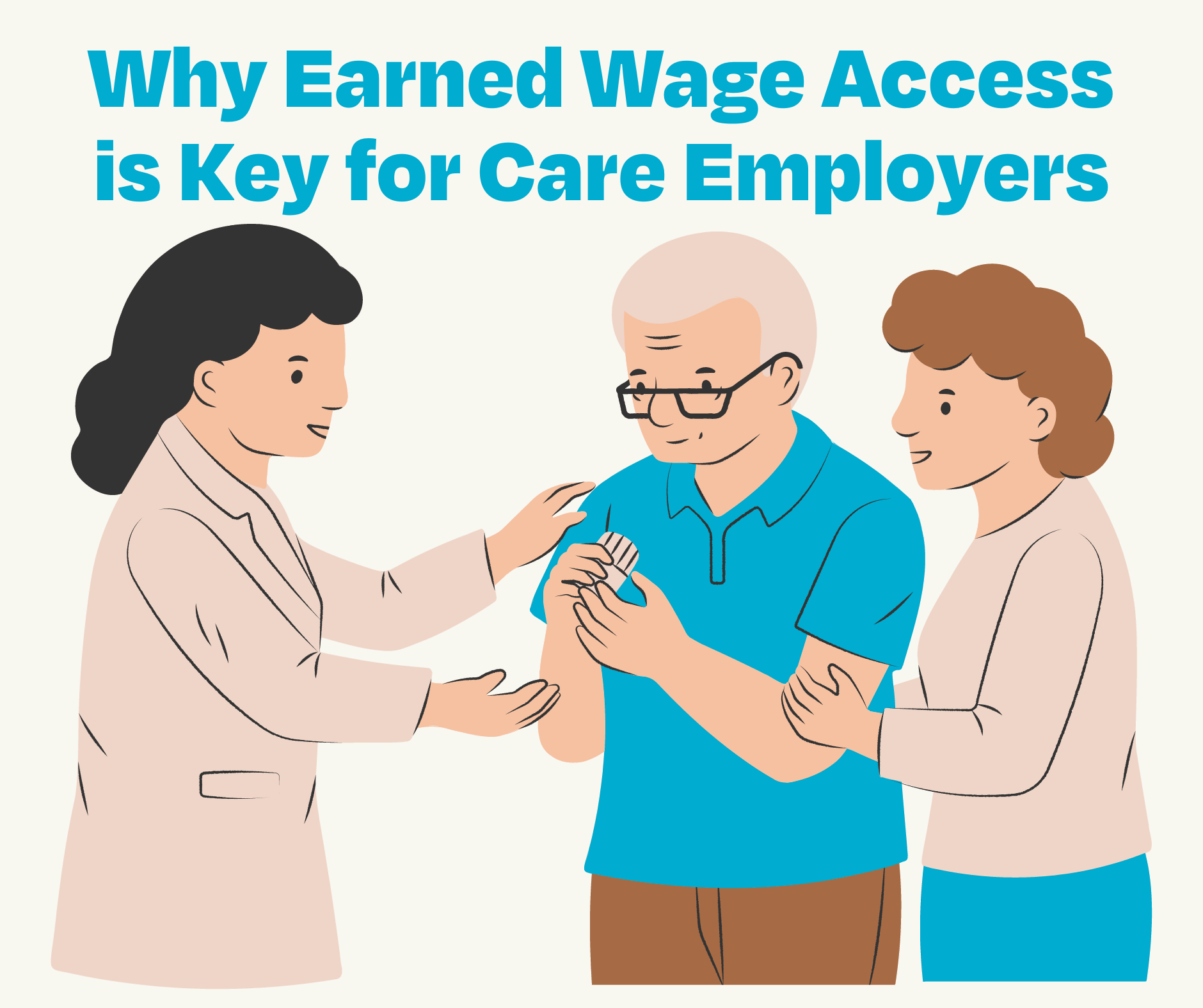Why Earned Wage Access is Key for Care Employers
Healthcare and social care industries are uniquely positioned in the modern economy. Not only do they support our most fundamental needs, but they also embody the front line of empathy and caregiving in our society. Yet, those who work in these sectors often face work-related stressors that go beyond what many other professionals do. Among those stressors, financial strain ranks high, but an innovative solution called Earned Wage Access (EWA) is beginning to change that narrative, especially in the UK.
Understanding Earned Wage Access
Earned Wage Access, also referred to as On-Demand Pay, simply put, is a service that allows employees to access the pay they’ve already earned without having to wait for a traditional monthly or bi-weekly payday. This On-Demand Pay method honours a simple fact: the work has been done, so why should the reward for that work be delayed?
For many care workers, hourly wages and the pay cycle can lead to financial vulnerability. If an unexpected expense occurs, the lack of immediate access to their earned pay can result in stress, absenteeism, or even a decision to leave the profession.
Earned Wage Access, particularly in the UK’s social care sector, is providing a much-needed financial lifeline by giving workers more control over their pay schedule.
The Benefits of Earned Wage Access for Care Employers
Financial Wellbeing for Employees
Earned Wage Access not only gives care workers control over when they get paid but also contributes to their overall financial wellbeing. By alleviating financial stress, care workers can focus more on their critical roles without the distraction of monetary concerns.
Attracting and Retaining Talent
Social care is experiencing a staffing crisis with recruitment and retention being a considerable challenge. Earned Wage Access offers a competitive advantage, distinguishing care providers who offer it. It is a benefit that can attract new talent in competitive labour markets while keeping existing staff content and loyal.
Reducing Administrative Burden
On-Demand Pay solutions streamline the payroll process, lifting the administrative burden from care employers. It minimizes discrepancies and reduces the overhead associated with advance pay requests and loans, and does not impact cashflow.
Supporting Employee Mental Health
Financial insecurities heavily impact mental health. By offering Earned Wage Access, care employers show they value their staff's holistic wellbeing, aligning with the core values of empathy and support that envelop the care sector.
Earned Wage Access in the UK - A Growing Trend
The adoption of Earned Wage Access in the UK is growing as more care employers recognise the profound impact it can have on their operational success and their employees' lives. More than 15% of all employers in the UK now offer this. In industries such as social care, this number is much higher closer to a third.
Despite its relative newness, the concept has garnered interest from policymakers and industry leaders who see it as a stepping stone towards a more resilient and empowered workforce in social care.
Keywords: Earned Wage Access, social care, On-Demand Pay, Earned Wage Access UK
Final Thoughts
The role of care workers has never been under more scrutiny than it is today, nor more valued. Providing them with Earned Wage Access is more than a perk—it’s a profound acknowledgement of their worth and practical support that can make a real difference in their lives. In the UK, where societal wellbeing is interwoven with the health of the social care system, Earned Wage Access isn’t just a benefit, it's becoming a necessity.
Care employers looking to improve employee satisfaction, retention, and overall operational efficiency should consider the implementation of Earned Wage Access. By doing so, they will not only enhance the financial wellness of their employees but also strengthen the backbone of the care industry itself.
Talk to an On-Demand Pay specialist here at Level today, and find out how Level can be your On-Demand Pay Provider, and start boosting your employee’s financial wellbeing.

